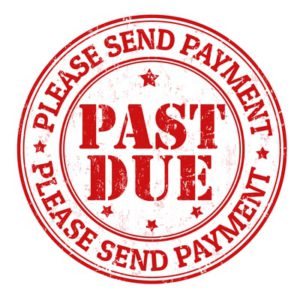If you’re a homeowner who is experiencing financial hardship because of the coronavirus, then you may be concerned about making your mortgage payments right now. It’s important to know that help is available. The federal government and many private loan providers and servicers have plans in place to provide assistance to those who are struggling. Here’s what you need to know if you find yourself in this position.
 What mortgage relief options are available?
What mortgage relief options are available?
The Coronavirus Aid, Relief, and Economic Security (CARES) Act was created to help homeowners who have mortgages backed by the federal government. These include mortgages backed by Freddie Mac and Fannie Mae and those that are guaranteed by the FHA, VA, or USDA. This act ensures that you will not face foreclosure until May 17, 2020 unless the deadline is extended. Homeowners also have the right to request forbearance for up to 180 days, and then request an extension of another 180 days. You will be charged no fees, penalties, or interest during this time and no documentation of need is required. Though the CARES Act only applies to federally backed mortgages, many other loan providers and servicers are offering help as well.
What relief options do I qualify for?
If you don’t know who owns your mortgage, then it may be difficult to determine what relief options are available to you. To find out who owns your mortgage, call your loan servicer and ask. You can find the contact information for your loan servicer on your monthly mortgage statement or in the payment book they provide. Alternatively, you can look it up online at the MERS Servicer ID website. Find out the name, address, and phone number of who owns your loan.
How do I request mortgage relief?
After you’ve determined who owns your loan, contact your loan servicer. Be aware that all loan servicers are experiencing high call volumes, so be prepared to wait on the line. If your loan is covered by the CARES Act, then alert the servicer that you are experiencing financial hardship as a result of the pandemic. If the federal government does not own your loan, then ask your servicer what options are available to you. This could include suspending or reducing payments, forbearance, loan modification, or waived late fees. Once you’ve determined what option best suits you, get it in writing so you know what the terms are.
What happens next?
Once you’ve secured your mortgage relief or forbearance, you should keep updated on what happens. Keep all records related to the relief and monitor your monthly mortgage statements for errors. If your mortgage payments are automatically deducted from your account, then make the necessary adjustments so you can avoid fees or other charges. Routinely check your credit report for errors and report them if you find any as they can negatively impact your credit score. You should also confirm with your servicer if your property taxes and home insurance will continue to be paid through an escrow account. If not, you will need to continue to make those payments.
Compliments of Virtual Results






 Catch Our Feed
Catch Our Feed Subscribe via Email
Subscribe via Email Follow Our Tweets
Follow Our Tweets Friend Us On Facebook
Friend Us On Facebook Watch Us On Youtube
Watch Us On Youtube